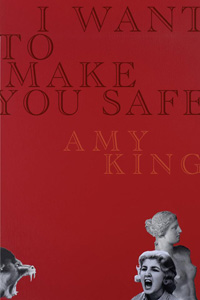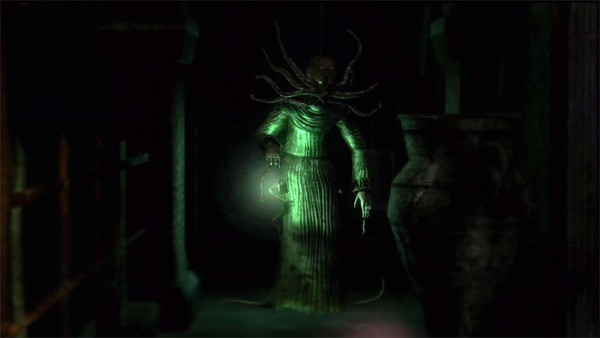Fishkind’s Unretraction

It is a beautiful Saturday. Granted, it could be a little warmer, but I can’t really complain. I mean, I can complain, and I will, but that’s my prerogative, n’est-ce pas? I feel like shit. Am I allowed to feel like shit? I don’t feel like shit anymore. I can deduce that this shit-feeling came from my use of French, meant to be a quip. I can’t do that without apology. Consider this my retraction. I must retract a lot of things if I’m ever going to get back to baseline. I don’t know what that means.
I was awoken by my girlfriend’s cell phone at 5am, buzzing in the first email of the rest of her life. Her mother nervous about her brother getting stitches in a racquetball accident around 11pm last night. My girlfriend proceeded to text her brother, who also, inexplicably, was up and aware of this email, a chain of events stemming from his own personal world of hurt, literally, as he claims to have been hit by a racquet at such speed and flection as to have caused serious damage to his… skin? I don’t know why people get stitches. What I want to know is at what level of intensity of a wound does one leave the Band-Aids and peroxide at the wayside and shuffle down to the hospital on a Friday night. Maybe I’ve needed stitches in the past, maybe I haven’t. There’s a story my mother used to tell about my slicing my hand on some glass as a baby and getting “butterfly stitches.” And to me, that sounds worse than real stitches—perhaps implemented only to doctor the lacerations inflicted by a butterfly knife.
Awoken again, about 45 minutes later, her mother was calling, asking about details of the injury. My girlfriend says on the phone she has been asleep, a questionable remark, but what do I know being subject to that very plea. Her mother spoke softly about something I had lost, drifting away again into submission. The phone was placed again on the beside table, to go off again in a few hours.
Revisiting The Brutal Language of Love
The theme for my graduate workshop this semester is writing love and sex into fiction. With each story or book we read, I ask students to think about what those texts say about love and sex because there are so many different ways to approach these topics. By the end of the semester, I want them to answer the question, “What is a love story?” I also want them to find new ways to write love stories. So far, it has been an exceptional class and our classes have been so invigorating because the students are really getting into what we’re reading and having killer discussions. More importantly, their writing, both critical and creative, has been fantastic. We just finished workshopping their first stories and every student surprised me with how they interpreted this idea of a love story.
One of the books we’re reading is Alicia Erian’s The Brutal Language of Love, and as we discuss the book, I am reminded of the brilliance of this collection. I assigned this book for lots of reasons, but mostly because Erian’s writing here responds to many dominant cultural narratives about love, sex, and gender, in complex, original ways. Oftentimes she writes these strange women who openly display their damage without apology but we never learn why the way they are. So often in our fiction we explain a character’s motivations or explore the underlying pathology. In most of these stories, there’s none of that. We have to simply accept the characters as they are. Many of the stories also approach love and sex through narrators who possess a sense of wry detachment and intimate self awareness. I don’t know of any writer who conveys the observations of a young woman with the skill of Erian.
A Man Reads Men by the Lips of Women
 I Want to Make You Safe
I Want to Make You Safe
by Amy King
Litmus Press, 2011
87 pages / $15 Buy from SPD Books
Amy King is doing God’s work. Of course, I don’t mean God in a traditional Christian way; I mean God in the way that King speaks of God in her recent book, I Want to Make You Safe:
of our collective minds
of our collective wing wax
of our flights past time zones.
King’s poetry—its meandering syntaxis, its resistance to singular meanings, its mysterious connections and lack of connections—opens up the mind to unexplored avenues of thought. I also find King doing this work through her editing, specifically on the journal, Esque, which she co-edits with Ana Božičević, in which they bring together a wide array of contemporary poets and prose experimentalists, people like Jennifer Karmin, Cara Benson, Cynthia Arrieu King, Ching-In Chen and more. The new edition alone should get her a seat in heaven. If you haven’t seen the third issue, called Revolutionesque, you should definitely check it out.
February 24th, 2012 / 1:00 pm
Vidja Games and Mystery
Narrative is rarely any fun without mystery. You can get mystery in a lot of ways. In a creative writing class my senior year at Butler, my teacher Susan Neville passed a story around the room. I don’t remember what the story was. I think it was about two people in a car. I think they were young people. Susan pointed out that though the characters were taking turns speaking, neither one was responding to what the other person had to say. She said that if you listened to the way people really speak to each other, this turned out to be mostly true. We don’t listen: we wait for our turn to speak. What she didn’t point out was that this stood in stark contrast to the way college students tend to write, wherein a pair of extremely attentive conversationalists trade ideas and information in the collaborative pursuit of synthesis, consensus, etc. What she also didn’t point out was the way that this corrodes the mystery of the story: when two characters with ostensibly different interests agree completely on the direction of a conversation (or even on the terms of their own disagreement), the writer’s intent becomes glaringly obvious. So there is one way of creating mystery. Make your characters talk past each other.
Another way is to present an image so breathtaking, so rich with implications, and yet so beyond our grasp, that mystery can’t help but form. Another way is to create a character who makes interesting decisions that make us wonder why they made the decisions. Another way is to make thoughtful, sublime choices in language. Another way is to make thoughtless, sublime choices in language. And so on. Another way, but often a rather blunt instrument, is simply to withhold information. If your reader doesn’t know what’s going on, who’s doing it, or why, that counts as mystery, right? Well, sure. But maybe not the good kind.
The old Nintendo games tended to be naturally mysterious. There were many reasons for this. One is the graphical limitation of the system. NES games could only display a small number of colors with limited animation. It didn’t have a lot of pixels to work with, either — it was a very low-res system. This made the system’s representations abstracted, and, as such, a little mysterious. Sometimes (often) you literally couldn’t tell what you were looking at. READ MORE >
The 3rd Man by Graham Greene
The ocean is full of flowers that betray most readers. Or Graham Greene’s adulterations of poetic form in The Third Man are particularly well suited to his subject—racketeering. As we all know, on March 13, 1938, Germany took over Austria (termed the Anschluss)–a contingency specifically disallowed in the Versailles Treaty. Then we all took Austria back, but then it gets messy. This book is a tale of a “secret agency” (in the words of Sun Tzu) told through dialogue, exposition, tunnel chases, elegiac couplets, literary quotations, assassinations, and letters. Greene continues to be, as one critic has put it, “compulsively readable,” especially in his characterization of his villain, a charismatic but chronically unfaithful racketeer who publishes his friend’s writing as his own (westerns), and who is capable of saying “…I never lied to myself.” For example, the author spent nearly five million pounds, and employed over 150 researchers, in his mission to destroy martini lunches inside and outside the country (concerning events that happened over 60 years ago!). When needs arose our author may have used words that lied. Nonetheless, the hatted fellow cannot resist the money (this book was meant to be a screenplay), and his complicity is evident in the desperate acerbity of their dialogue (whispered). At one point, spy # 7 unleashes a terrific string of epithets: “lazy… plotter…sewage sucker…acronym…shootout child…liar…destroyer sadist fake.” Our hero Bond counters:
If you wish not to go on with this I’ll shoot.
Don’t shoot.
I’ve shot everything before.
What’s wrong with us.
Fog of war.
Why are we at war.
Because I don’t want to give up my penicillin.
Your dreams are a mess.
They are my masterpiece.







